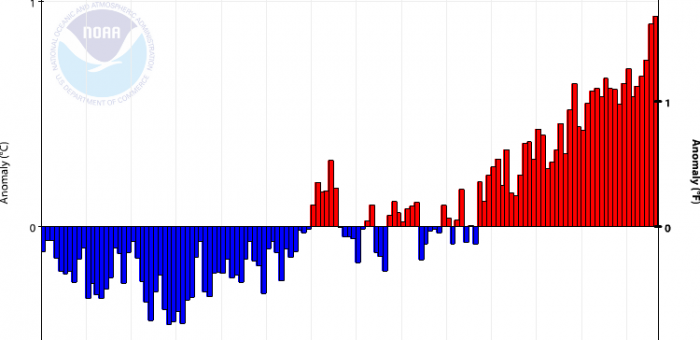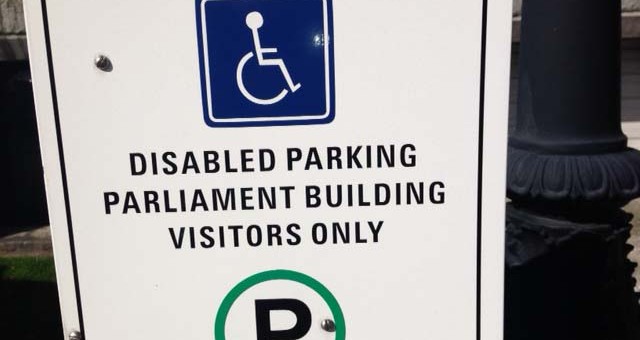Media Release
Bringing the warning from the world’s scientists to the BC Legislature
On November 13, 2017 a second world scientists’ warning to humanity was published in Oxford University Press’s prestigious journal Bioscience. Signed by 15,364 scientists from 184 countries, this warning concluded:
“To prevent widespread misery and catastrophic biodiversity loss, humanity must practice a more environmentally sustainable alternative to business as usual. Soon it will be too late to shift our course away from our failing trajectory, and time is running out. We must recognize in our day-to-day lives and in our governing institutions that earth, with all its life, is our only home.”
This message came 25 years after a similar message was delivered by 1,575 pre-eminent scientists in 1992.
What’s remarkable is that the support for the second warning continues to grow and it has strong support from the British Columbia scientific community. For example, of the 15,364 initial signatories, 40 were from the University of Victoria and 61 from the University of British Columbia. 554 scientists from Canada signed the initial warning and this number has grown to 994 since the letter was published.
Anyone who has watched the documentary Running on Climate knows that I take the warning very seriously. It was the reason that I ran with the BC Greens in 2013.
Today in the legislature I rose during Members’ Statements to bring the message of these scientists directly to the BC Legislature.
Below I reproduce the video and text of my delivery. I also append the accompanying media release.
Video of Statement
Text of Statement
A. Weaver: In 1992, Dr. Henry Kendall, a Nobel laureate in physics, organized a statement signed by 1,575 pre-eminent scientists that was sent to government leaders of all nations. The statement warned:
“Human beings in the natural world are on a collision course. Human activities inflict harsh and often irreversible damage on the environment and on critical resources. If not checked, many of our current practices put at serious risk the future that we may wish for human society and the plant and the animal kingdoms and may so alter the living world that it will be unable to sustain life in the manner that we know. Fundamental changes are urgent if we are to avoid the collision our present course will bring about.“
Twenty-five years later, a second warning, now signed by 15,364 scientists from 184 countries was issued. Published last week in Oxford University Press’s prestigious journal Bioscience, this warning concluded:
“To prevent widespread misery and catastrophic biodiversity loss, humanity must practice a more environmentally sustainable alternative to business as usual. Soon it will be too late to shift our course away from our failing trajectory, and time is running out. We must recognize in our day-to-day lives and in our governing institutions that earth, with all its life, is our only home.”
The warning quantitatively analyzed the nine environmental issues identified in 1992, and they show that in all cases but one, conditions have actually gotten worse and, in most cases, dramatically so.
Yet that one success story offers us so much hope. In 1987, the Montreal protocol was finalized. All 197 countries in the UN have ratified this protocol, and it has led to a dramatic reduction in substances that deplete the ozone layer. And 170 of these 197 countries have already ratified the Paris climate agreement, which formed the basis of discussions earlier this month at the 23rd Conference of the Parties to the UN framework convention on climate change.
Let us collectively reflect upon the warnings of the world’s scientists, as well as the words of the Gov. Jay Inslee, who addressed the Legislature yesterday. In reference to tackling climate change, he noted:
“This is one of the greatest challenges of our time. If we are remembered for anything 100 years from now, this is what we will be judged on. It is time for us rise to that challenge.“
Media Release
Weaver delivers warning from 15,364 scientists to the B.C. Legislature
For immediate release
November 22, 2017
VICTORIA, B.C. – Andrew Weaver, leader of the B.C. Green Party, read a warning from a letter signed by from 15,364 scientists in 184 countries to the B.C. Legislature. The Letter, published last week by the Alliance of World Scientists and entitled “World Scientists’ Warning to Humanity: a second notice,” warns world leaders that there needs to be change in order to save the earth.
“As leaders, we have a responsibility to younger generations to ensure that our actions today do not leave them worse off than we are,” said Weaver.
“I am proud to deliver this message to the B.C. legislature so that we may be reminded of this responsibility and take urgent action to address climate change. B.C. has a history of leadership in climate action. I am proud that our Agreement with the B.C. NDP has once again moved us in this direction, but there remains much work to be done.
“B.C. has a highly educated workforce, abundant natural resources and is one of the most beautiful places in the world to live. If we have the courage to champion a bold vision, we can ensure that B.C. is a leader not only in climate action, but also in the low-carbon economy that is emerging as world leaders step up to reduce emissions.”
The letter states that in order “to prevent widespread misery and catastrophic biodiversity loss, humanity must practice a more environmentally sustainable alternative to business as usual…Soon it will be too late to shift course away from our failing trajectory, and time is running out.”
The warning comes 25 years after Dr. Henry Kendall, a Nobel Laureate and former Chairperson of the Union of Concerned Scientists, organized a similar statement signed by 1,500 scientists in 1992.
Weaver is a renowned climate scientist who prior to his election in 2013 served as Canada Research Chair in climate modelling and analysis in the School of Earth and Ocean Sciences at the University of Victoria. He was a Lead Author on the 2nd, 3rd, 4th and 5th Intergovernmental Panel on Climate Change’s scientific assessments and has authored or coauthored over 200 peer-reviewed, scientific papers and was the Chief Editor of the Journal of Climate from 2005-2009.
-30-
Media contact
Jillian Oliver, Press Secretary
+1 778-650-0597 | jillian.oliver@leg.bc.ca
BC Greens, BC Liberals and BC NDP work collaboratively to improve legislation
Today in the legislature the BC Government introduced a series of amendments designed to improve the Election Amendment Act, 2017. In their accompanying news release, the Attorney General, David Eby, stated:
“I am pleased that the amendments introduced today are a tangible result of that commitment and include changes proposed by both opposition parties.“
We were very pleased that the government tabled two of our proposed amendments. Below is the press release that we issued today.
Media Release
B.C. Greens work with government to increase transparency, reduce influence of big money in new campaign finance legislation
For immediate release
November 20, 2017
VICTORIA, B.C. – Andrew Weaver, leader of the B.C. Green Party, and Adam Olsen, Party spokesperson for campaign finance, welcomed the introduction of a number of amendments to the Elections Amendment Act today. Two amendments, one to phase in quarterly reporting and another to limit the influence of big money currently in the system, were ideas that the B.C. Greens brought to the table during their consultations with the government following the introduction of the legislation earlier this year.
“Big money has been a notorious defining feature for B.C. politics, and it is remarkable how far we have come since the election,” said Weaver.
“We have now achieved all-party agreement on the need to reform our campaign finance laws. All parties have brought different ideas to the table as to the shape this should take, and today we have a number of amendments that reflect the views of all three parties. This is exactly how government should work and I am deeply encouraged by the emerging instances of collaboration in this minority government.”
Olsen added that the amendments greatly strengthen the transparency and integrity of the legislation.
“We felt that quarterly reporting for political donations, which is already required federally, was an essential feature for ensuring transparency in our campaign finance system,” said Olsen.
“Quarterly reporting will give the press and the public a much more clear and timely picture of the flow of political donations in this province, which will go a long way towards increasing accountability and trust.
“The prior political contributions amendment will ensure that the big money donations currently in the system cannot directly influence voters and pay for political attack ads. This will greatly expedite the transition to a campaign finance system where people, not special interests, are what drive our politics in British Columbia.”
-30-
Media contact
Jillian Oliver, Press Secretary
+1 778-650-0597 | jillian.oliver@leg.bc.ca
Site C and LNG in BC: Standing up for the ratepayer
Today in the Legislature I rose in Question Period to question the Minister of Energy Mines and Petroleum Resources about the need for Site C in light of a nonexistent LNG industry. I further questioned whether or not she would defend the interests of British Columbians and ensure a fair price for our natural gas assets by evoking a cancellation provision with the Progress Energy royalty agreement (as Petronas has not made a positive final investment decision).
In addition, in April, 2015 when Bill 23, The Miscellaneous Statutes Amendment Act was introduced by the BC Liberals, the BC NDP and I spoke out about profoundly troubling changes to the way Royalty Agreements are managed under the Petroleum and Natural Gas Act. Under these changes, the Minister was granted the power to enter into secret agreements with oil and gas companies without the approval of Cabinet. I felt it was important important to see whether the Minister would agree to not undertake such agreements.
Below I reproduce the video and text of the exchange as well as a copy of our accompanying press release.
Video of Exchange
Question
A. Weaver: I think I’m living in some kind of a fantasy world here in question period today. It’s quite remarkable.
To entice LNG projects to British Columbia in 2014, the previous government promised proponents electricity rates of 8.3 cents per kilowatt hour, but that wasn’t good enough. So two years later, they dropped the rate to 5.4 cents per kilowatt hour.
Now, we know the actual cost of power from Site C, if the government continues with this project. It will be over ten cents a kilowatt hour, while residential customers today are paying 8.6 cents at tier 1 and 12.9 cents per kilowatt hour at tier 2.
Not only are residential customers paying nearly twice what hypothetical LNG companies would pay, they’re also financing Site C to provide electricity to a nonexistent industry through a business model that will lose about five cents for every kilowatt hour of energy produced. That’s B.C. Liberal economics for you. Fortunately, for the members of that party, they have one leadership candidate who hasn’t run on their abysmal economic record.
My question to the Minister of Energy, Mines…
Interjections.
Mr. Speaker: Members, we shall hear the question, please.
A. Weaver: My question to the Minister of Energy Mines and Petroleum Resources is this. Will government admit that the only reason to continue with the construction of Site C is to provide ratepayer-subsidized power to a nonexistent LNG industry?
Answer
Hon. M. Mungall: Thank you to the member for the question. He is aware of the process that is undergoing right now. We’ve just completed the B.C. Utilities Commission review of Site C. That report was delivered just a week ago, and this government has announced that we are now moving into our analysis, and then we’ll be doing proper deliberations.
Next week myself and the Minister of Indigenous Relations and Reconciliation are actually going to be formally consulting with Indigenous communities and First Nations leaders who are directly impacted by Site C. Saying anything at present about future decision-making would likely prejudge that, and I’m just not going to be doing that.
Supplementary Question
A. Weaver: The previous government did everything industry asked them to make their LNG dreams a reality. “Jump.” “How high? How often? Where to? How many times?” They wanted to deliver unicorns to each and every one of our backyards, and when they couldn’t squeeze water from a stone, they tried desperately to squeeze even harder.
They even changed the natural gas royalty legislation so that the minister could negotiate sweetheart deals in secret. They signed a deal with Progress Energy.
Interjections.
Mr. Speaker: Members.
A. Weaver: They signed a deal with Progress Energy and its partners that would have locked in low royalty rates for years and cost B.C. millions. But that contract had an escape valve. One of its conditions was a positive final investment on Pacific Northwest LNG by June of 2017. Yet Petronas decided to kill the project.
My question to the Minister of Energy Mines and Petroleum Resources is this. When will the government stand up for the people of B.C., demand a fair price for our natural gas assets and terminate the long-term royalty agreement with Progress Energy? And will the minister confirm, for the record, that this government will not negotiate royalty agreements in secret with any other gas companies?
Answer
Hon. M. Mungall: I think there’s no doubt that anybody on this side of the House would agree with the member that the previous government made large promises and absolutely failed to deliver on those promises. I think we’ve canvassed a few of those: the jobs with LNG, the LNG prosperity fund, the “Debt-free B.C.” Families first, as well.
That being said, moving forward, we have committed to work with industry but also to make sure that our regulatory oversight bodies are doing their due diligence, as well, and that they have the resources to do so. On this side of the House, we want to make sure that government is working for all British Columbians and that we’re all together building a better B.C.
Media Release
November 8, 2017
For immediate release
Site C, Hydro finances demonstrate need to reverse trend of failed Liberal economic management: Weaver
VICTORIA, B.C. – Andrew Weaver, leader of the B.C. Green Party, is calling for an overhaul of BC’s approach to the energy file. Weaver says that the politicization of energy has got in the way of sound fiscal management and evidence-based policies that would protect ratepayers and allow BC to become a leader in alternative energy.
“Energy has been treated like a political tool in this province, depriving British Columbians of the leadership and sound fiscal management they deserve from their government,” said Weaver.
“Today, the NDP announced that they are freezing Hydro rates. B.C. Hydro is in a dire financial position due to the utter failure of the B.C. Liberals to responsibly manage our finances. They raided B.C. Hydro of more than half a billion dollars in dividends last year alone. ICBC is facing a similar financial mess for the same reason.
“Since the Liberals used LNG as a Hail Mary pass to clinch the 2013 election, they have been hell-bent on developing an industry that was never going to materialize. Due to Liberal enticements to LNG companies, British Columbians pay nearly twice as much as hypothetical LNG companies for their Hydro.
“Site C is yet another piece of this disturbing puzzle – it is billions of dollars over budget and was pushed through without proper oversight by BCUC to satisfy the LNG pipedream. BCUC, an independent body whose purpose is to protect ratepayers, was blocked from doing its job because of the Liberals’ blind pursuit to get to yes at any cost.
“The NDP is at a crossroads. They can continue down this path of reckless Liberal fiscal management, or they can keep their promise to be better. While I’m glad they’re reviewing BC Hydro, there are concrete steps they can take to reverse the trend of energy policy being used as a political tool. They can and should cancel the Long Term Royalty Agreement with Progress Energy, who, by the way, is responsible for the two largest unregulated dams in North Eastern BC. They can, and should stop the pilfering of BC Hydro by requiring dividends that, if not stopped, will amount to $2.8 billion by 2020.
“We cannot keep making political decisions while saddling future generations with debt. If the NDP truly want to make life more affordable, freezing hydro rates without developing an energy strategy – which will simply saddle our children with these costs – is not the solution. We have a generational opportunity to use this minority government to chart a new path for BC, one that takes us away from the BC Liberals fiscal mismanagement. It will require us to think big and to take bold action, but that is exactly what British Columbians deserve from their leaders.”
-30-
Media contact
Jillian Oliver, Press Secretary
+1 778-650-0597 | jillian.oliver@leg.bc.ca
Reintroducing endangered species legislation for British Columbia
Today in the legislature I reintroduced a private member’s bill entitled Bill M208 — Endangered Species Act, 2017. This Act builds off the Ontario Endangered Species Act and the B.C. version of their legislation tabled by the BC NDP in 2011. My office was grateful to work with the late Gwen Barlee from the Wilderness Committee and environmental lawyer Sean Nixon from EcoJustice to close loopholes and make the bill more proactive and preventative. We also incorporated language from the United States Federal Endangered Species Act to make it more effective and comprehensive. Of note is the addition of a section that mirrors the US Endangered Species Committee.
Below I reproduce the text and video of the speech I gave as I introduced the bill. I also include the accompanying media release.
Video of Introduction
Text of Introduction
I move that a bill intituled Endangered Species Act, 2017, of which notice has been given in my name on the order paper, be introduced and read a first time now.
As the 23rd conference of parties to the United Nations framework convention on climate change meets in Bonn, Germany, I’m reminded that the world is in the midst of the sixth great global extinction event and that this time humans are the driving force. British Columbia is the most bio-diverse province in Canada, but it is also home to more at-risk species than any other province. Half of British Columbia’s assessed species are deemed at risk.
In addition to identifying, protecting and rehabilitating at-risk wildlife populations and habitats, this act seeks to introduce proactive measures that will prevent healthy species from declining in the first place. This act builds off the Ontario Endangered Species Act, the B.C. version of their legislation, tabled by the B.C. NDP in 2011 and the American federal Endangered Species Act.
Under the guidance of lawyers and advocates, who have worked tirelessly on this issue, in particular the late Gwen Barlee, who I will forever be indebted to for her assistance on this, we were able to close a number of problematic loopholes and make this act more proactive, transparent and effective than the aforementioned acts.
Of note is the addition of a section that changes how exemptions are made. Instead of being left to the discretion of the minister, under this section, if the government or industry want to take actions that will result in a species going extinct, it is required to go through an independent, publicly disclosed board review.
Mr. Speaker: The question is first reading of the bill.
Motion approved.
A. Weaver: I now move that the bill be placed on the orders of the day for second reading at the next sitting of the House after today.
Bill 17, Endangered Species Act, 2017, introduced, read a first time and ordered to be placed on orders of the day for second reading at the next sitting of the House after today.
Media Release
Weaver introduces bill to protect B.C.’s endangered species
For immediate release
November 6, 2017
VICTORIA, B.C. – Andrew Weaver, leader of the B.C. Green Party, reintroduced his Private Member’s Bill, the Endangered Species Act, 2017. Weaver first introduced the bill in February 2017 under the previous B.C. Liberal government. The Act builds off similar legislation introduced in Ontario and tabled by the B.C. NDP in 2011, and was further developed with the input of Gwen Barlee from the Wilderness Committee and environmental lawyer Sean Nixon from EcoJustice.
“I am re-introducing this bill to ensure that this issue stays at the top of the government’s priorities,” said Weaver.
“It is time British Columbia joined the vast majority of Canadian provinces and introduce its own made-in-BC legislation to protect our province’s endangered species. This legislation was developed in consultation with some of our province’s leading experts on this subject, including the late Gwen Barlee, to whom i will be ever grateful for her assistance and commitment to this cause. This legislation contains a number of ways to close problematic loopholes, as well as to incorporate some of the best ideas from other jurisdictions, which I urge the government to include when it introduces its own endangered species legislation as promised next year.
“The world is in the midst of an extinction crisis, and humans are the driving force. British Columbia is the most biodiverse province in Canada, but it is also the home to more at-risk species than any other province. Half of British Columbia’s assessed species are deemed at risk.
“British Columbians know we cannot put a price on the value this unparalleled biodiversity provides. We owe it to future generations to ensure that we are doing all we can to protect species at risk of extinction.”
In addition to the provisions of the Ontario Act and the legislation tabled by the BC NDP in 2011, Weaver’s bill incorporates language from the United State Federal Endangered Species Act to make it more effective, proactive, preventative and comprehensive. Of note is the addition of a section that mirrors the US Endangered Species Committee, a committee of cabinet-level members who have the sole authority to issue exemptions to the Endangered Species Act.
-30-
Media contact
Jillian Oliver, Press Secretary
+1 778-650-0597 | jillian.oliver@leg.bc.ca
Reintroducing a bill to protect RDSPs and RESPs from creditors
Inspired by the discussion on Monday with Stephanie Cadieux, the MLA for Surrey South, during Private Members statements, I reintroduced a Private Members’ bill to protect Registered Disability Savings Plans (RDSPs) and Registered Education Savings Plans (RESPs) from creditors.
Registered Retirement Savings Plans (RRSPs) were first introduced federally in 1957. Legislation enabling Registered Retirement Income Funds (RRIFs) was subsequently brought forward in the late 1970’s thereby permitting seniors to withdraw their RRSP funds over time instead of all at once or through purchase of an annuity. Since that time, most provinces, including British Columbia, have recognized the importance of protecting RRSPs and RRIFs from creditors in the event of personal bankruptcy. They have passed legislation to protect RRSPs and RRIFs from being seized during bankruptcy. This provides a bankrupt individual a glimmer of hope that they will not be destitute in their old age. Here in British Columbia, such seizures are governed by the 1996 Court Order Enforcement Act.
In 2008 the Federal Government passed legislation to allow for the creation of Registered Disability Savings Plans (RDSPs). The RDSP is a federal, tax-deferred, long-term savings plan for people with disabilities who want to save for the future. Unfortunately, under the Court Order Enforcement Act, RDSPs are not listed as a registered plan in BC’s legislation and are therefore not exempt from creditor protection. Therefore, should an individual with an RDSP go into debt, their savings in the RDSP will not be protected from seizure.
The province of Alberta has already taken such measures and amended their Civil Enforcement Act to include RDSPs under Section 92.1(I): Exemption of registered plans and registered disability savings plans. Legislation has also passed in Alberta protecting RESPs from creditors.
By ensuring the financial security and well-being of those living with disabilities, we are not only providing the individuals and their loved ones with a sense of security, we are also reducing the strain on social services that incurs when individuals are unable to care for themselves. By also including RESPs in section 71.3 of the Court Order Enforcement Act, we are protecting children who, through no fault of their own, might see their education investment seized by creditors.
Below I reproduce the text and video of my introduction, as well as the accompanying media release.
Text of Introduction
A. Weaver: I move that a bill intituled the Court Order Enforcement Amendment Act, 2017, of which notice has been given in my name on the order paper, be introduced and read a first time now.
I’m pleased to be introducing a bill intituled the Court Order Enforcement Amendment Act, 2017. Inspired by a discussion on Monday, I’m reintroducing this for the second time.
Registered retirement savings plans are protected in this province from creditors in the case of personal bankruptcy. Protecting these funds provides a small safeguard that individuals undergoing bankruptcy will not be completely destitute in their old age. It’s good law that most provinces in Canada have adopted.
However, there is no protection for funds that are part of a registered education savings plan or a registered disability savings plan. These are important funds that need equal protection. Recognizing that a child should not have their education investment seized due to misfortune that befalls their parents, the Alberta government passed legislation a number of years ago protecting RESPs. It’s with this in mind that I bring this bill forward today.
This bill amends the Court Order Enforcement Act to ensure that RESPs and RDSPs are protected by law from creditors.
Mr. Speaker: The question is first reading of the bill.
Motion approved.
A. Weaver: I move that the bill be placed on the orders of the day for second reading at the next sitting of the House after today.
Video of Introduction
Media Release
Andrew Weaver introduces bill to protect RDSPs and RESPs from creditors
For immediate release
November 1, 2017
VICTORIA, B.C. – Andrew Weaver, leader of the B.C. Green Party, today introduced a bill to protect Registered Disability Savings Plans (RDSPs) and Registered Education Savings Plans (RESPs) from creditors. The bill, the Court Order Enforcement Amendment Act, 2017, was first introduced by Weaver in March 2016 and would provide RDSPs and RESPs with the same legal protection as Registered Retirement Savings Plans (RRSPs) and Registered Retirement Income Fund (RRIFs).
“A child should not have their education investment seized due to misfortune that befalls their parents,” said Weaver
“RDSPs and RESPs are important funds that British Columbians use to save for their futures. It is only fair that they have the same protection as RRSPs and RRIFs. This protection provides a glimmer of hope to those facing bankruptcy that they will not be destitute in their old age. There is no reason why British Columbians who are eligible for the disability tax credit and contribute it into RDSPs shouldn’t have that same glimmer of hope should they ever face a dire financial situation.
“I have been raising this issue in the house for three years now. Government has had plenty of time to consider it. It is time that government acts to finally give British Columbians’ RDSPs and RESPs the equal protection they deserve.”
-30-
Media contact
Jillian Oliver, Press Secretary
+1 778-650-0597 | jillian.oliver@leg.bc.ca








